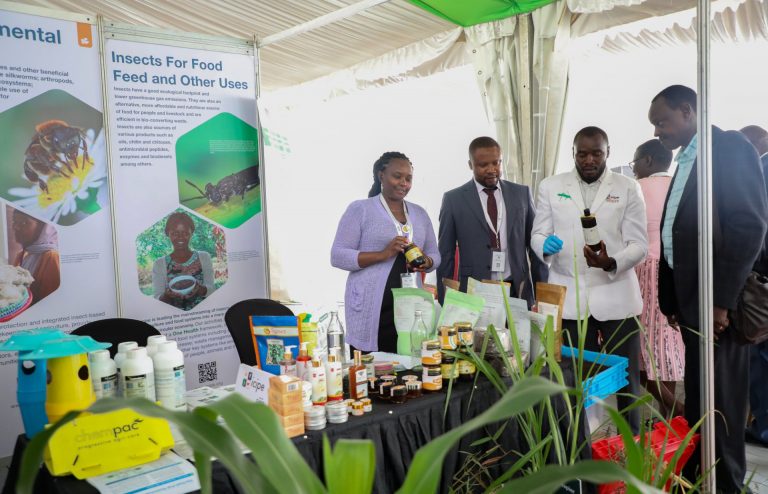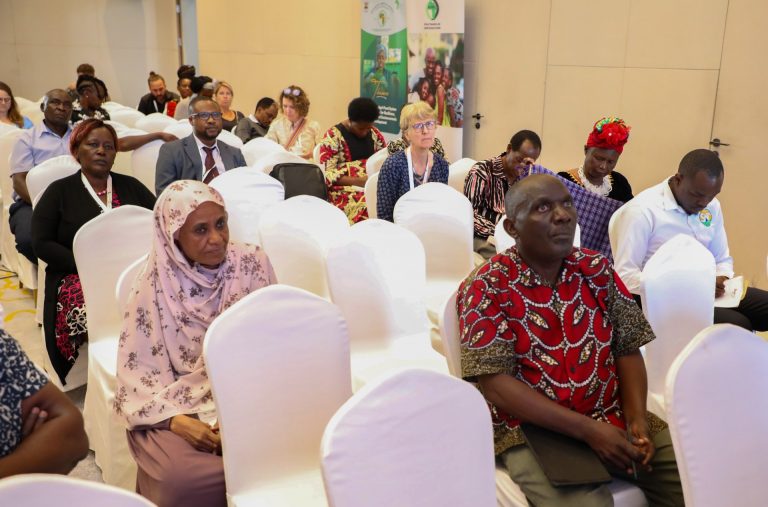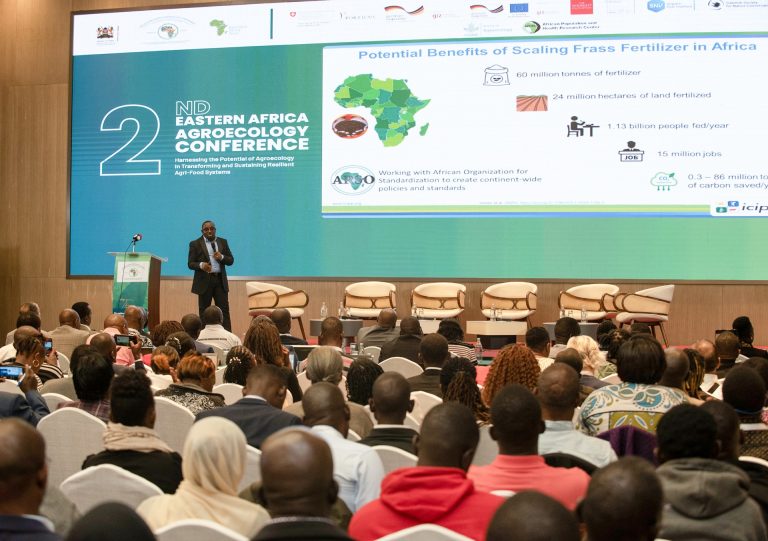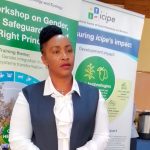Dr Chrysantus Mbi Tanga, Senior Scientist and Head of the Insects for Food, Feed and Other Uses (INSEFF) Programme at the International Centre of Insect Physiology and Ecology (icipe) presenting at the conference.
Agricultural experts gathered at the 2nd Eastern Africa Agroecology Conference this week to explore sustainable solutions for Africa’s farming challenges.The confrence was organized by Biovision Africa Trust, the Ministry of Agriculture and Livestock Development and over 20 organizations partnered to host the conference under the theme “Strengthening Agri-Food System Transformation.”
Speaking at the conference, Dr. Chrysantus Mbi Tanga from the International Centre of Insect Physiology and Ecology (icipe) captured attention with his presentation on a surprising solution – fertilizer made from insect waste.
“Insect frass fertilizer isn’t just another organic option,” Dr. Tanga said adding that It outperforms traditional fertilizers while solving multiple problems at once.
He explained how this innovation addresses Africa’s twin crises of soil degradation and pest outbreaks that threaten food production across the continent.

The nutrient-rich fertilizer, derived from insect farming byproducts, offers remarkable benefits. Tests show it not only nourishes crops better than conventional options but naturally fights pests and balances soil acidity. “We’re looking at a product that can boost yields by 30% while creating new jobs in insect farming,” Dr. Tanga revealed.
Scaling up production requires urgent action, according to the researcher. “The potential is enormous, but we need investment and policy support to make it accessible to smallholder farmers,” he said. The technology could recycle tons of agricultural waste while helping farms adapt to climate change.
Read more on:
Icipe showcased several innovations through interactive exhibits, demonstrating their commitment to practical solutions.
“When we work with nature rather than against it, everyone wins – farmers, consumers, and our planet.” Dr.Tanga noted.

The confrence aligned with the African Union’s Ecological Organic Agriculture (EOA) initiative. The EOA initiative promotes sustainable organic farming systems to improve food security, agricultural productivity, and livelihoods across Africa while safeguarding the environment.










